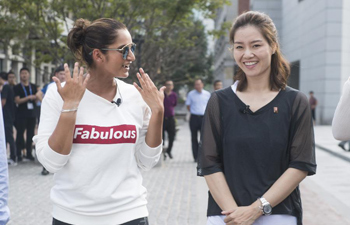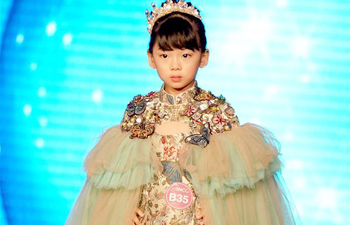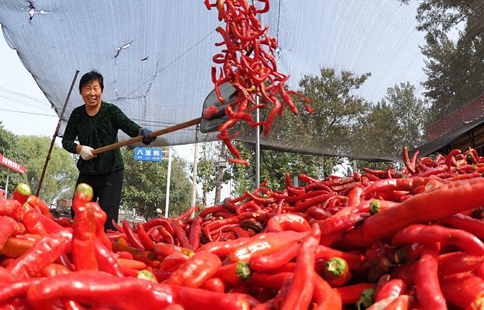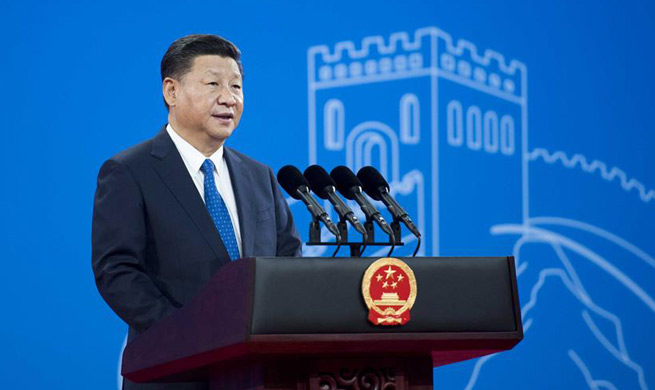ZAGREB, Sept. 26 (Xinhua) -- Croatian consumers are frustrated by the food inequality row in Europe, but daily newspaper Slobodna Dalmacija reported Tuesday that food brand HiPP was relaunching one of its products in the country after a survey showed there were significant differences between seemingly identical products being sold in Croatia and Germany.
On Sept. 1, Croatian news agency HINA published an analysis of the quality of 26 products that could be found on both the Croatian and German markets. The result was that more than half of the products on the Croatian market were of poorer quality and significantly more expensive than those sold in Germany.
Supervised by the Croatian Food Agency, the study discovered that 23.8 percent of the products had a "significant difference" in terms of quality.
In the case of HiPP, the German version of its product was made with carrot, potato and rice, while the one sold in Croatia had no potato. Also, the product from the German market contained more vegetables (38 percent carrot and potato) and less rice (15 percent), as opposed to Croatian market where the same product contained 24 percent carrots and a higher share of rice (21 percent).
Biljana Borzan, Croatian representative in the European Parliament, was one of the first politicians who started talking about the different quality of the same products sold in Eastern and Western Europe.
She spent most of her budget that every member of the European Parliament has for promotion, on the product comparison test. A similar survey revealed the same thing was happening in other Eastern European countries. Finally, European Commission President Jean-Claude Juncker on Sept. 13 spoke out against the double standards in food quality in his address to parliament, saying there should be no "second class consumers" in the European Union's single market.
The HiPP decision to relaunch the product in Croatia has been a great success for Borzan.
"This is a huge victory for me and Croatian consumers. We managed to protect the most vulnerable -- young children -- from the second-class products that are less healthy. The HiPP example has shown that you can move mountains when you know you are right. I expect other manufacturers to follow this example," Borzan wrote on her Facebook page on Monday.
"Research has shown that it is a scam because consumers have been convinced that they deal with the same product as in Germany, since the product packaging and advertising are identical," Borzan wrote in an email to Xinhua last week.
A significant difference was also identified in Nutella, with they being used in the Croatian product, whereas the same product in Germany was made exclusively with skimmed milk. It was also 28 percent more expensive in Croatia.
Moreover, analysis showed that fruit yogurt in Croatia contains less fruit and more sugar. There was a significant difference identified in Ariel washing detergent too, with the German product being much more effective at lower temperatures and it was 25 percent cheaper in Germany.
The companies argued that they had been responding to local demand rather than deliberately misleading consumers, but Borzan doesn't buy that argument.
"Consumer preferences can be understood as an argument, but in some cases, it just isn't true. What research has shown that Croats prefer detergent that washes less well, or that babies in Croatia prefer to have a smaller omega 3 acid that is important for their growth?" Borzan said.
Director of the Croatian Food Agency, Andrea Gross-Boskovic, told Xinhua last week that the result of the survey was a bit surprising because of the quantity of difference.
"Earlier tests in some other eastern European countries exposed similar results, but we didn't expect to see such differences in so many products. There is a difference in more than half of the tested products, but I have to emphasize that most of it is because of the non-labeling declarations, while in 20 percent we revealed a significant difference," Gross-Boskovic said.
On Wednesday, Borzan and Gross-Boskovic will hold a discussion at the European Parliament about the survey and to discuss a solution to this disturbing problem. Their guest will be the European Commission's most senior official responsible for justice and consumer rights, Vera Jourova, who recently said there had been "manifest cheating" for years by multinationals.
















